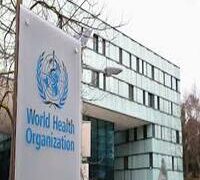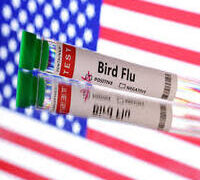A non-governmental organisation, Protecting and Activating Communities against Tobacco, Lagos hub, has called for increased funding to ensure effective enforcement of tobacco control and the No Smoking law in Lagos State, Southwest Nigeria.
PACT, a subsidiary of the Voices for Tobacco Control, made this call during an advocacy march in partnership with the Lagos Youth Parliament and Lagos Kick Against Drug Abuse at the Lagos State Secretariat, Alausa, Ikeja.
The project lead of PACT, George Adjete, told PUNCH Healthwise that although the Lagos State government had domesticated the National Tobacco Control Act, the level of awareness and enforcement was low.
The Lagos State Regulation of Smoking Law, also dubbed the Lagos No Smoking Law, 2014 prohibits smoking in public places, enclosed areas, and vehicles where non-smokers may be unduly exposed to cigarette smoke.
This law mandates smoke-free environments in various public places, including hospitals, schools, public transportation, and restaurants, and aims to protect public health by reducing exposure to second-hand smoke as well as penalties for violations.
Also, the National Tobacco Control Regulations prohibit smoking in outdoor spaces, including public transport.
Tobacco use is the leading cause of preventable deaths globally.
According to the World Health Organisation, tobacco use is a major cause of premature death and disability.
It is also a risk factor for non-communicable diseases and claims about 29,000 lives every year.
The Global Adult Tobacco Survey report for Nigeria, 2012, showed that about 4.5 million adults aged 15 years and older use tobacco.
Speaking further, Adjete, said that although the march coincided with the Lagos State’s Governor’s presentation of the 2025 budget to the parliament, the alignment underscored the urgent need for enhanced funding and enforcement of tobacco control measures in Lagos State.
The PACT project lead further commended the Federal Government for increasing investment in the Tobacco Control Fund, which has been raised from N4.7m to N10m in the 2024 National Budget.
However, he stated that the sum was inadequate to address the pressing needs of the Tobacco Control Fund.
“Additionally, we note the absence of publicly available information regarding specific budgetary allocations for tobacco control at the state level, despite the domestication of the Tobacco Control Act through the No Smoking Law in Lagos,” the PACT project lead said.
He decried the weak enforcement of the existing tobacco control policies, stating that this allowed the infiltration of the tobacco industry through online advertising and the promotion of emerging products.
“Children in Lagos frequently encounter tobacco products in retail environments, often displayed prominently and without restriction. New products, such as shisha, are marketed in appealing flavours, misleadingly presented as less harmful alternatives to traditional cigarettes. Early exposure to tobacco significantly increases the likelihood of lifelong addiction.
“Moreover, many public spaces in Lagos still permit smoking, and even establishments where smoking is prohibited often allow shisha use, exposing patrons to harmful secondhand smoke.
“Cigarette smoke contains over 7,000 chemicals, with approximately 70 known carcinogens. The dangers of secondhand smoke are profound, increasing the risk of heart attacks and lung cancer among non-smokers. Nearly one-third of the adult population is exposed to second-hand smoke, highlighting the need for immediate action,” Adjete added.
He asserted that since half of all tobacco users faced the risk of premature death from diseases such as cancer and cardiovascular conditions, it was imperative that tobacco control funding became a government priority.
The Tobacco Control Advocate also noted that the National Tobacco Control Act recommended financial support from all levels of government and established a Tobacco Control Fund.





































